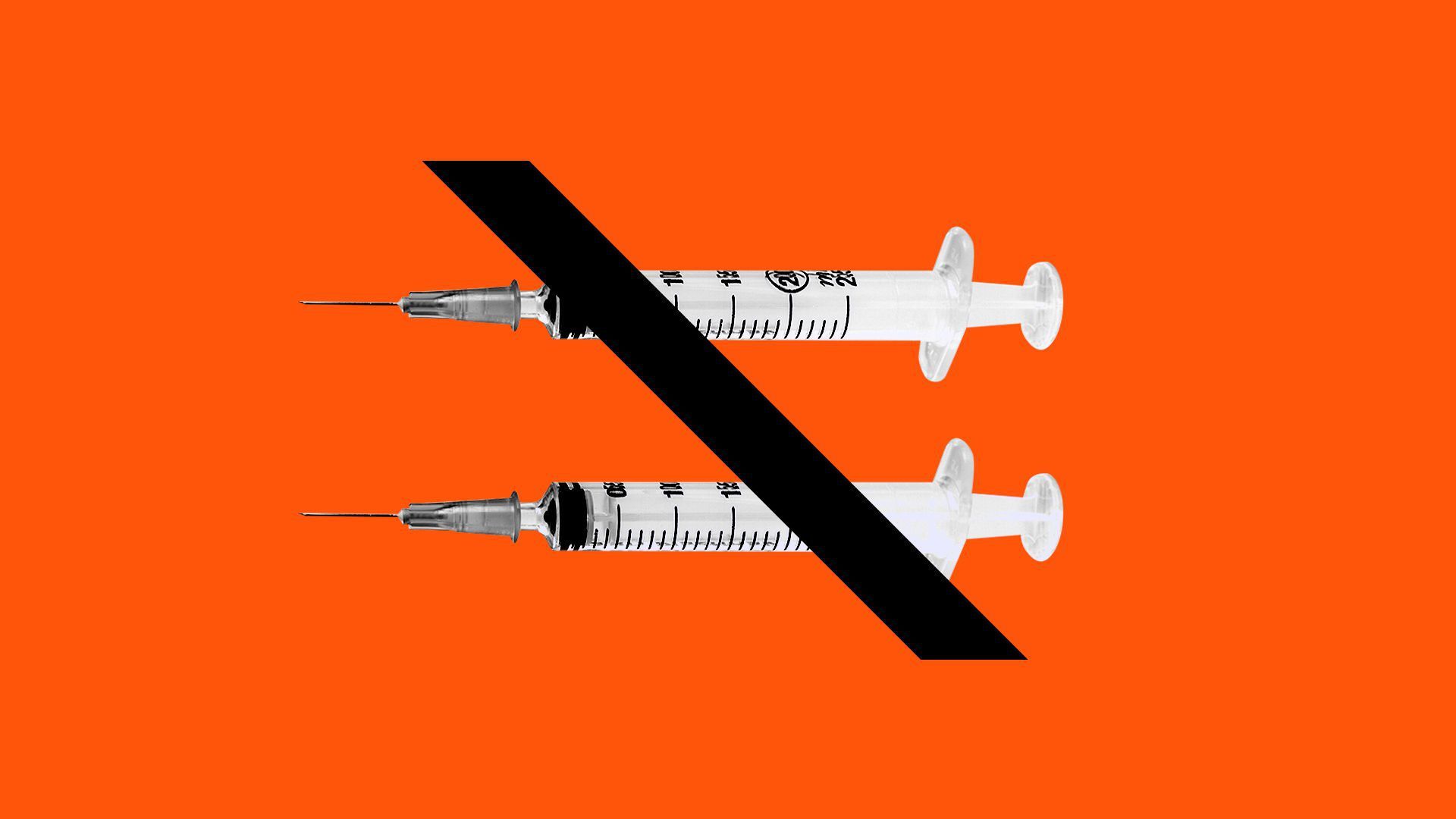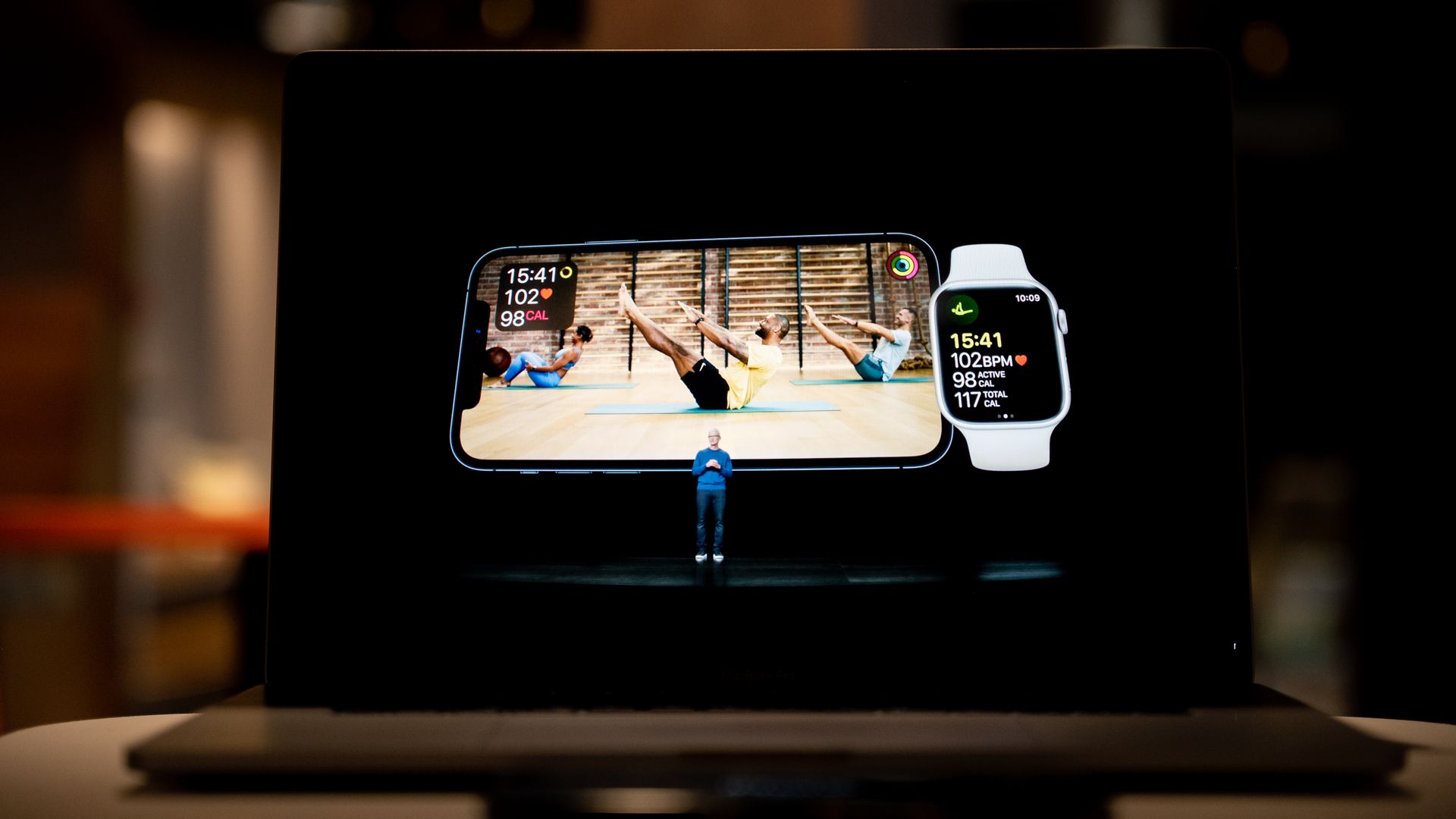| |
| |
| |
| Presented By UnitedHealth Group |
| |
| Axios Vitals |
| By Tina Reed ·Sep 15, 2021 |
| Good morning, Vitals readers. Today's newsletter in 824 words, or a 3-minute read. Situational awareness: Three moderate House Democrats announced Tuesday they planned to vote against a measure in committee aimed at lowering drug prices, which is a key part of their party's massive reconciliation bill, The Hill reported. |
| |
| |
| 1 big thing: Moderna and Pfizer may differ more than we thought |
 |
|
| Illustration: Aïda Amer/Axios |
| |
| Moderna's shot may maintain a higher effectiveness over time than Pfizer's, even though they're based on similar technology, Axios' Caitlin Owens reports. - The gap could always disappear with more data, and both vaccines remain very effective against severe disease.
- But if the gap does hold up, it raises questions about whether the two vaccines should be treated the same way policy-wise.
Driving the news: Several studies have found a difference between the two vaccines' effectiveness over time, although some experts have cautioned that this could stem from flawed head-to-head comparisons. - "There have been sort of signals from enough separate sources that start to paint a picture that may reflect a real biological phenomenon — a real difference," said Natalie Dean, an Emery professor who specializes in vaccine study design.
Zoom in: In a study released last week, the CDC found that Moderna was significantly more effective against hospitalizations than the Pfizer or J&J vaccines. Between the lines: Pfizer was the first vaccine authorized for use in the U.S. and began being administered several weeks before the Moderna vaccine. - "Because of the way the rollouts happened, the oldest and most vulnerable and sickest people, like nursing home residents, got Pfizer," said Cornell virologist John Moore.
- However, the CDC study found that Moderna's efficacy was higher across all ages.
Yes, but: Both vaccines are nearly equal in their capacity to "do what a vaccine needs to do, which is protect against severe illness," said Paul Offit, director of the Vaccine Education Center at the Children's Hospital of Philadelphia. The bottom line: The Moderna data may more closely resemble Pfizer's after more time passes. But it may be unwise to treat the two as if they're identical. Go deeper. |
    |
| |
| |
| 2. Pandemic didn't lead to spike in uninsured |
 Data: Census Bureau; Chart: Axios Visuals Roughly 8.6% of Americans didn't have health insurance in 2020, a figure that has stayed consistent since 2018, Axios' Bob Herman reports from the latest U.S. Census Bureau data. Why it matters: Government assistance, in the form of beefed-up Medicaid eligibility and heavily subsidized plans through the Affordable Care Act, kept people insured despite the pandemic-fueled recession. Between the lines: The Census Bureau said there was no statistically significant increase in Medicaid enrollment, but other federal data show enrollment in Medicaid and the Children's Health Insurance Program soared by 14% from February 2020 to February 2021. - Congress increased funds for Medicaid programs and said states couldn't kick people off Medicaid during the pandemic.
- The Census Bureau's numbers are off from other federal data because the agency had trouble receiving responses for its survey due to the pandemic.
Reality check: While the uninsured rate didn't increase, 28 million people still didn't have health insurance. - And uninsured rates increased for certain subgroups, including Black children (4.6% in 2018 to 6% in 2020) and adults who live in non-expansion states (35.6% in 2018 to 38.1% in 2020).
Go deeper: Pandemic-era stimulus lifted millions out of poverty, new government data shows |
    |
| |
| |
| 3. Pfizer vaccine data for young kids coming in Oct. |
| Pfizer could release clinical trial data for the use of its COVID-19 vaccine in kids younger than 5 by the end of October, CNBC reported. - "Then, it is up to the FDA to take their time, and then make a decision," CEO Albert Bourla said on Tuesday, per CNBC.
Between the lines: Pfizer and BioNTech have said they expect to present results from use of COVID-vaccines in children between the ages of 5 and 11 as soon as the end of this month. By the numbers: The news comes as the latest weekly tally of pediatric COVID-19 cases topped 243,000 infections, just shy of a record number, according to the latest report from the American Academy of Pediatrics. - Children made up 28.9% of all reported COVID cases in the latest data.
|
    |
| |
| |
| A message from UnitedHealth Group |
| Advancing health equity by addressing social determinants of health |
| |
 |
| |
UnitedHealth Group is committed to addressing social barriers that influence disparities in health care access, outcomes and affordability. We have helped: - Create 12,000 homes by investing $550 million in affordable housing.
- Provide over 100 million meals during the pandemic.
Learn more. |
| |
| |
| 4. Chart du jour |
 Reproduced from KFF; Chart: Axios Visuals The surge in COVID-19 hospitalizations among the unvaccinated added up to about $5.7 billion in preventable health care costs over the summer, according to an updated KFF analysis. |
    |
| |
| |
| 5. Changes to Apple Watch health features |
 |
|
| Photo: Jonathan Cherry/Bloomberg via Getty Images |
| |
| There were modest improvements and no new health sensors on the newest version of the Apple Watch, which debuted Tuesday during a virtual event. Between the lines: As the Wall Street Journal reported earlier this month, Apple is working on health-related features for its smart watch, such as a blood pressure sensor and a thermometer for fertility planning. - But analysts have said most of Apple's "more ambitious health-related improvements aren't expected before 2022" with a future version of the watch, per WSJ.
- The biggest health-related announcements for Apple Watch Series 7 instead centered around the expansion of Apple Fitness+, which is Apple's workout streaming subscription program. They also debuted fall detection for cyclists, as well as a new mindfulness app.
|
    |
| |
| |
| 6. Business notes |
- Delta Air Lines says its $200 monthly healthcare surcharge motivated one-fifth of its unvaccinated workers to get vaccinated against COVID-19 within two weeks. (Business Insider)
- Aetna is being sued over fertility treatment coverage for LGBTQ people. (NBC News)
- Amazon's bet on healthcare begins to take shape. (Financial Times)
- The DOJ says a data mining company fabricated medical diagnoses to make money. (NPR)
|
    |
| |
| |
| A message from UnitedHealth Group |
| Expanding access to care in underserved communities |
| |
 |
| |
| UnitedHealth Group is helping to address social determinants of health for uninsured individuals and underserved communities. See how we're advancing health equity through community partnerships that have helped more than 6 million people access care, nutritious food and stable housing. |
| |
 | | It'll help you deliver employee communications more effectively. | | |









No comments:
Post a Comment